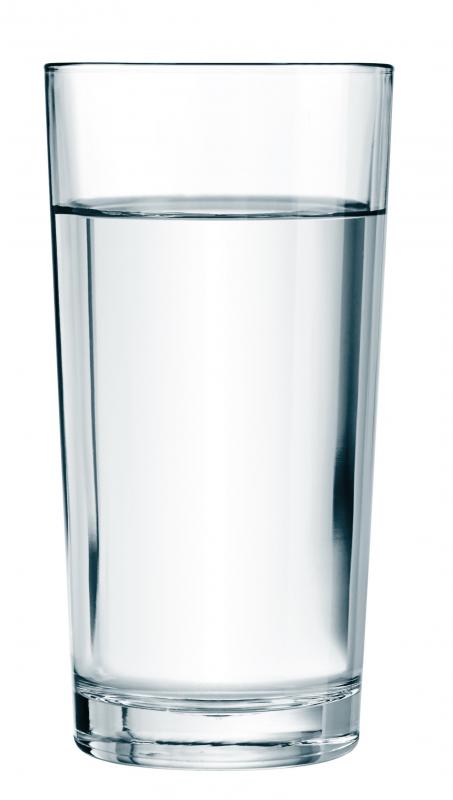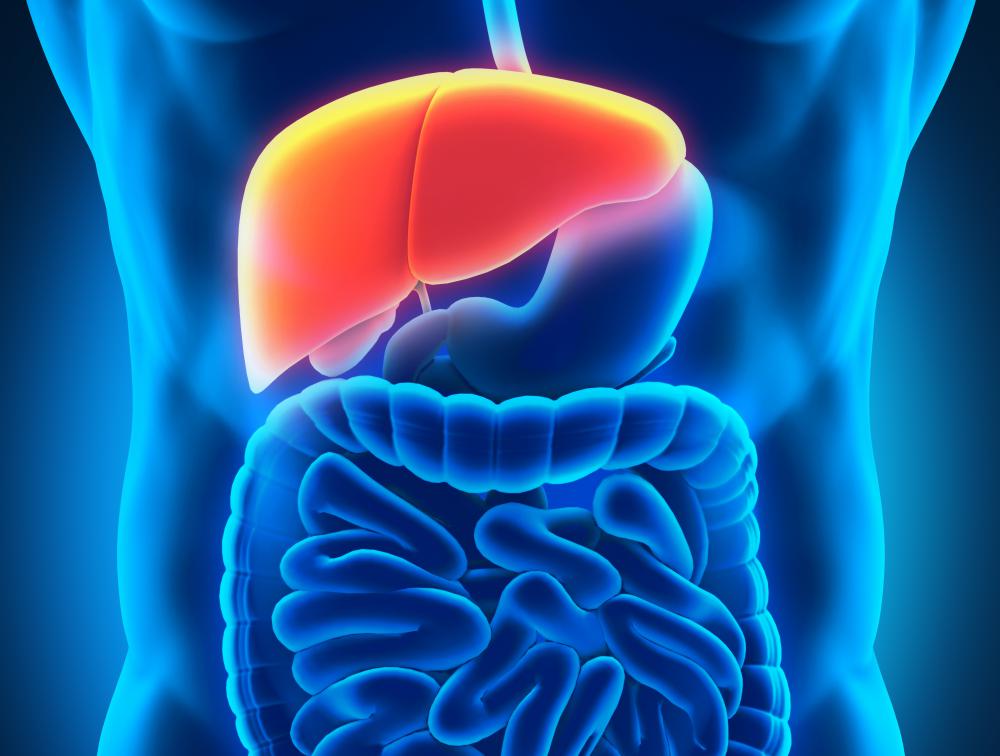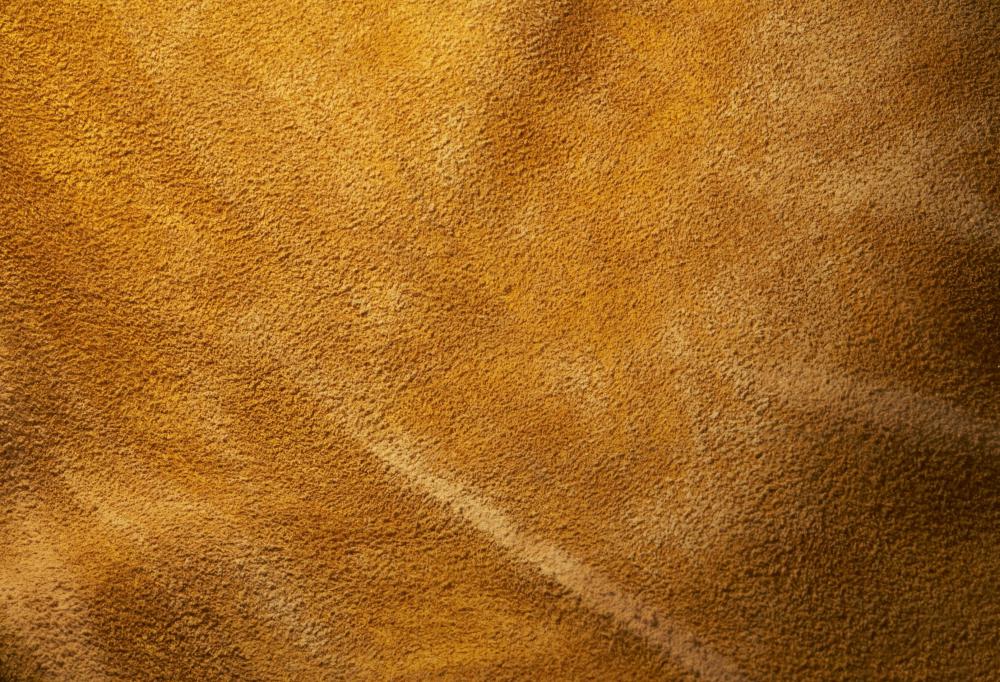At AllThingsNature, we're committed to delivering accurate, trustworthy information. Our expert-authored content is rigorously fact-checked and sourced from credible authorities. Discover how we uphold the highest standards in providing you with reliable knowledge.
Is Dry Cleaning Bad for the Environment?
Dry cleaning can help keep a favorite cashmere sweater in top condition, but it’s not always the best choice for the environment. Perchloroethylene, also known as tetrachloroethylene, perc, PCE, C2Cl4, Cl2C=CCl2, or tetrachloroethene, is a solvent used by 90% of dry cleaners in the United States. Perchloroethylene is a highly effective cleaning agent, although it can result in color bleeding or loss if not used properly, but it is also toxic and causes several harmful side effects.
Some studies have indicated that perchloroethylene can cause menstrual irregularities, fertility problems, and spontaneous abortions among women who work in the dry cleaning industry. Its residue can also seep into drinking water, causing a variety of problems. For example, many scientists believe that exposure to this chemical can cause liver or kidney damage. In addition, it has been named a “probable carcinogen” by the International Association for Research on Cancer.

In response to customer complaints about the dangers of perchloroethylene, many dry cleaners have begun to investigate alternative cleaning methods. Hydrocarbon solvents such as Chevron-Phillips' EcoSolv or Exxon D-2000 work much like standard dry cleaning agents, but without the harmful side effects. Wet cleaning, a system that uses water and biodegradable soap, is an environmentally-friendly process that works well for silk, rayon, leather, suede, and wool garments. Liquid carbon dioxide obtained as a byproduct of certain industrial processes can be combined with silicone to create another effective, yet environmentally-safe cleaning method.

Unfortunately, since these “green” processes are relatively new, people who live outside of metropolitan areas may find it difficult to find a reputable dry cleaner who doesn’t use perchloroethylene. Home dry cleaning kits that use plastic bags and specialized cleaning sheets are widely available, however, and provide a convenient way to freshen clothing while removing minor stains. Several studies have determined that these kits are less harmful to the environment than cleaning a garment with perchloroethylene. Using home drying kits between trips to a local dry cleaner is an inexpensive way to help reduce the environmental impact of the process.

While the process used to clean clothing does have a substantial effect on the environment, there are other factors that people may wish to consider when choosing a dry cleaner. For example, many have a policy of solvent recycling, plastic bag recycling, and hanger recycling. This can help protect the environment by reducing the amount of waste that ends up in local landfills. Some dry cleaners have also upgraded to "third generation" machines that are more efficient at minimizing the amount of harmful chemicals used during the cleaning process.

Minimizing the need for dry cleaning is a proactive step toward reducing environmental impact. To complement this effort, finding the best laundry sheets and incorporating them into your laundry routine for other clothes can further contribute to environmental sustainability.
Given the environmental concerns associated with traditional dry cleaning methods, as highlighted in the article, many individuals are pivoting towards more eco-friendly laundry solutions. The best laundry detergent sheets is one that not only effectively cleans clothing but does so in an environmentally responsible manner. Opting for detergents that are biodegradable and free from harsh chemicals is a step towards reducing the environmental impact of our laundry routines.
Frequently Asked Questions
What environmental impacts does traditional dry cleaning have?

Traditional dry cleaning often uses a chemical solvent called perchloroethylene (perc), which is classified as a Toxic Air Contaminant by the Environmental Protection Agency. Perc can contaminate air, water, and soil, posing risks to wildlife and ecosystems. It's also a potential human health hazard, contributing to air pollution and long-term environmental degradation.
How does perc affect local wildlife and ecosystems?
Perc can enter waterways through improper disposal or leaks, affecting aquatic life by disrupting reproductive systems and causing other health issues. In terrestrial ecosystems, perc can impact soil quality, potentially harming plants and the animals that rely on them for food, thus disrupting local food chains and biodiversity.
Are there eco-friendly alternatives to traditional dry cleaning?
Yes, there are several eco-friendly alternatives to traditional dry cleaning. These include wet cleaning, which uses water and mild detergents, and liquid carbon dioxide cleaning, both of which are gentler on the environment. Companies are increasingly adopting these methods, which significantly reduce the use of harmful chemicals and their associated environmental risks.
Can consumers play a role in reducing the environmental impact of dry cleaning?
Consumers can make a difference by choosing environmentally responsible dry cleaners that use green methods. Additionally, purchasing garments that don't require dry cleaning, or those that can be cleaned with eco-friendly processes, can reduce the demand for traditional dry cleaning services and the subsequent release of harmful chemicals into the environment.
What happens to the perc waste from dry cleaning facilities?
Perc waste from dry cleaning facilities must be handled as hazardous waste according to government regulations. Facilities are required to dispose of it through methods that prevent release into the environment, such as incineration or hazardous waste landfilling. However, improper handling or disposal can still lead to environmental contamination.
Is there any regulation in place to control the use of perc in dry cleaning?
Yes, there are regulations in place to control the use of perc in dry cleaning. In the United States, the Environmental Protection Agency has established strict guidelines for the handling, storage, and disposal of perc to minimize its environmental impact. Some states have even more stringent regulations or plans to phase out the use of perc in dry cleaning altogether.
AS FEATURED ON:
AS FEATURED ON:















Discussion Comments
I don't live near a big city and rely on the local dry cleaner to clean the clothes that I can't launder at home. I admit that through the years I have gotten kind of lazy at doing a lot of my own laundry and find it easier just to drop things off at the cleaners.
Some of the items I take to the cleaners I could do at home, but it saves me so much time to drop everything off at once. I am now starting to look at this from a different perspective.
I don't see my small local cleaner offering any green solutions in the near future, but there are some things I can start doing myself. I can clean more of my clothes at home and even buy fewer clothes that need to be dry cleaned in the first place.
@andee-- Have you ever tried any of the home dry cleaning kits? I buy these and use them as often as I can. While it isn't nearly as effective at cleaning your clothes like they do at the cleaners, it does help freshen them up a bit. I figure if I only have to take my clothes to the cleaners half as often, I am saving money and not exposing myself to as many chemicals.
Whenever I walk into a dry cleaning business I can smell the chemicals. I don't always use the same place of business as I like to use dry cleaning coupons that come available to save some money. I have never been in one that doesn't have that strong chemical smell.
If I worked in this type of business and read the information about these chemicals possibly causing cancer and other potentially harmful side effects, I think I would be looking for a different job. It even makes me want to find a safer way to clean my clothes that can't be put in the washer and dryer.
@anon52696-- I am not sure what most dry cleaners do, but mine has a sign saying they will take your hangers and bags and recycle them for you. I really don't know where they take them to be recycled, but I like having the option to drop them off there.
When I get my dry cleaning home, I take them out of the bag and put them on the regular hangers I use in my closet. The next time I need to take clothes to the cleaners, I try to remember to take bake the bags and dry cleaning hangers that I just removed.
I hope that more dry cleaners will start doing something like this. I don't anybody who uses those wire hangers anymore and it seems very environmentally unfriendly to just toss them in the garbage along with the bags.
Take the plastic off. The plastic will trap moisture, gases from materials, and etc. that will damage fabrics/colors. Sort of like when you take out a jacket from storage and you find the blue lining turn pinkish or purple.
Dry cleaning is not all bad. Think about all the water the dry cleaners save in the US.
Take the hangers you don't need back to the dry cleaners so they can recycle the ones that can be used again. It's cheaper to buy rather than having someone sort hangers but we dry cleaners like the environment too, so we recycle what we can.
The alternatives (right now) do not have the cleaning power (Kb value) of perc and thus are not great alternatives yet. I know the media makes it sound like we want to kill you and the environment, but we work around perc and we care about our lives more than yours and if it is that dangerous, we would have chosen a new profession by now.
The machines we use these days are dry-to-dry which means they go in dry, get cleaned, and dried in the same machine so our exposure is not like the old days where people would transfer wet (dry cleaned) clothes saturated with perc and have to transfer it to a separate dryer.
What happens to all the wire and plastic hangers used by dry cleaners?
From my knowledge plastic is not harmful to you. But if you leave the plastic on you have not followed instructions correctly. They tell you to take it off when you get home because there may be chemicals left on the clothing and the plastic covering it does not allow whatever chemicals (in specific perc) to evaporate from the clothing.
i would like to know if the plastic bags that you bring the clothes home from the dry cleaners..is harmful to you if you keep them on all your clothes all the time take them off when you use them...thank you marie weaver so if you have a closet full of clothes and they all have plastic on them is that harmful to you ...
Post your comments